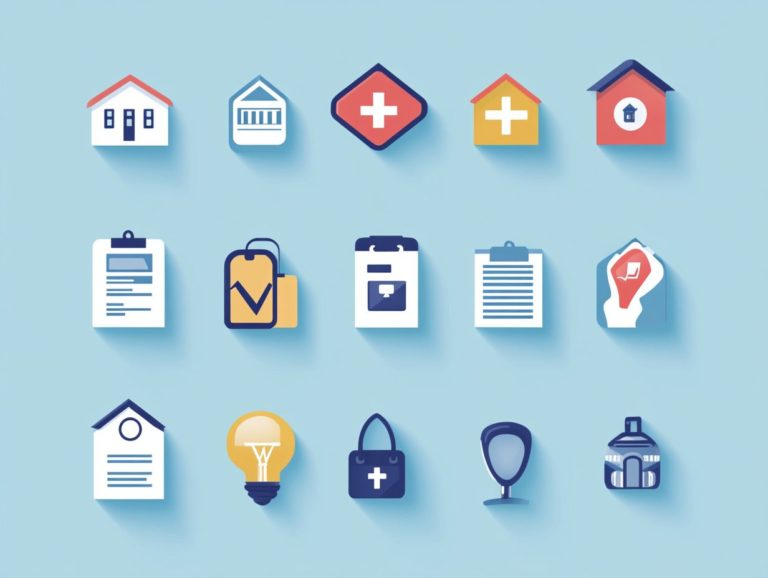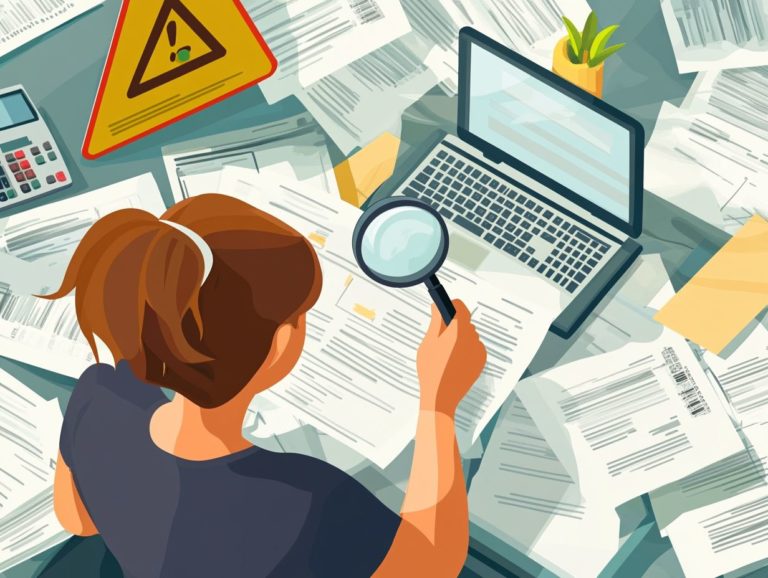Financial Planning for Freelancers with Families
Freelance financial planning encompasses a series of steps designed to help freelancers manage their personal finances and professional stability effectively.
It is crucial for freelancers to engage in financial planning due to the unpredictable nature of their income. This income can vary significantly from month to month without any guarantee of work, especially during challenging times like the pandemic. This variability poses challenges in budgeting, savings, and investments.
Dive into this guide to discover the essential steps freelancers can take to navigate the financial difficulties they may encounter. Key topics include becoming a successful freelancer:
- Budgeting with fluctuating income
- Long-term investing and retirement planning
- Safeguarding family finances
Furthermore, the guide addresses vital financial issues such as taxes and achieving a healthy work-life balance.
Contents
- Key Takeaways: Important insights for freelancers!
- Creating a Budget for Freelancers
- Investing for the Future
- Protecting Your Family’s Finances
- Managing Taxes as a Freelancer
- Tax Deductions Explained for Freelancers
- Tips for Balancing Work and Family Life
- Frequently Asked Questions
- What is financial planning and why is it important for freelancers with families?
- As a freelancer with a family, what are some key financial considerations I should keep in mind?
- How can I create a budget as a freelancer with a family?
- Should I consider getting professional help for my financial planning as a freelancer with a family?
- What are some ways freelancers with families can save for retirement?
- How can I ensure financial stability for my family as a freelancer?
Key Takeaways: Important insights for freelancers!
- Creating a budget that accounts for irregular income and expenses is key for financial stability as a freelancer with a family.
- Planning for retirement and other long-term goals, such as education expenses for children, is crucial for freelancers with families.
- Protecting your family’s finances through insurance and emergency savings can provide a safety net during uncertain times as a freelancer.
Overview of Challenges and Benefits
Freelancing is a relatively new business model for many individuals, offering unique challenges and benefits that have significantly impacted careers, especially due to the pandemic. The ability to be self-employed allows freelancers to engage in side hustles, providing financial freedom and the potential for increased income.
However, freelancers often face inconsistent income streams and the black tax, necessitating careful budget management and risk assessment. Maintaining high-quality work is essential for building a strong reputation and a substantial client base.
Freelancers must also navigate the demands of client outreach, which requires effective marketing skills and perseverance to secure jobs in a competitive market, often leveraging platforms like Upwork. Many freelancers find themselves spending excessive time networking and promoting their services, which can detract from the work they genuinely enjoy.
Despite these challenges, freelancing offers remarkable flexibility, allowing individuals to customize their work hours to better accommodate family life and personal goals. The potential for higher earnings, high-paying clients, and the ability to select projects that align with their passions can make the freelance journey worthwhile, transforming instability into an asset rather than a drawback.
Creating a Budget for Freelancers
Freelancers should establish a budget to effectively manage their finances. This ensures they can cover their self-employment taxes and save for an emergency fund.
A budget allows freelancers to track irregular income and expenses, serving as the foundational step toward long-term financial stability.
Managing Irregular Income and Expenses
Managing irregular income and expenses is crucial for a freelancer’s financial strategy, as it directly affects budgeting and overall financial health. Freelancers often experience fluctuating income streams, making diligent time management and expense tracking essential for maintaining solvency.
Budgeting techniques, such as the zero-based budget method—where every dollar earned is allocated to a specific expense or savings goal—can assist freelancers in effectively managing their financial fluctuations, particularly as they engage in various side hustles. Utilizing digital tools and apps can simplify expense tracking and provide valuable insights into spending patterns each month.
Setting aside a percentage of income during prosperous months can help alleviate challenges during leaner periods, ultimately fostering a more financially resilient career.
Start your financial journey today by creating your budget!
Investing for the Future
Investing for the future is essential for freelancers. This is especially true for retirement planning.
Freelancers don’t have employer-established retirement accounts. They must create their own retirement funds. Options like IRAs, SEP IRAs, Solo 401(k)s, and SIMPLE IRAs can help secure their financial future.
Retirement Planning and Long-Term Goals
Planning for retirement is a top priority. Freelancers need to consider various investment options, including diversified investments and health insurance plans.
To begin, freelancers should assess their financial situation, looking at their income and expenses to effectively plan for retirement.
Setting up a retirement account is crucial. An Individual Retirement Account (IRA) or a Simplified Employee Pension (SEP) can provide significant tax benefits over time. Freelancers should explore various investment options—like stocks, bonds, and mutual funds—that fit their risk tolerance and financial goals.
Familiarizing themselves with health insurance is also essential. Both short-term and long-term plans can cover unexpected medical emergencies, enhancing their financial stability.
Protecting Your Family’s Finances
Freelancers can protect their family’s finances by managing risks through insurance, emergency funds, and financial support. This ensures family bonds remain strong during tough times.
Insurance and Emergency Savings
Freelancers should investigate relevant insurance types, including liability insurance to guard against legal claims and income protection insurance to maintain cash flow during health issues.
Adequate insurance and a solid emergency fund are vital for risk management. These measures can shield freelancers from unexpected events, including medical emergencies.
Establishing an emergency savings account is crucial, as unpredictable financial challenges can arise. A financial safety net can significantly lessen their impact.
By implementing these strategies, freelancers can improve their financial security and marketability, allowing more focus on their work rather than financial concerns.
Managing Taxes as a Freelancer
Freelancers must navigate self-employment tax, estimated taxes, and tax deductions to fulfill their tax obligations. Understanding these responsibilities is crucial for maintaining a healthy client base and ensuring a sustainable freelance career.
Tax Deductions Explained for Freelancers
Tax deductions and filing requirements are crucial for freelancers. They directly impact the taxes freelancers pay on their income and the estimated taxes owed to the IRS. Effective financial planning ensures compliance with regulations while maximizing deductions that enhance net income.
Freelancers, get excited about maximizing your tax deductions! Be aware of specific deductions available to you, such as home office expenses, supplies, and health insurance premiums. These deductions reduce your taxable income and are vital for your business’s overall financial health.
To manage tax obligations effectively, freelancers must adhere to IRS filing requirements. This includes maintaining accurate records and submitting quarterly estimated taxes on time to avoid issues. Staying informed about tax changes and available resources helps freelancers avoid penalties and take advantage of eligible credits that can significantly reduce their tax burden.
Tips for Balancing Work and Family Life
Freelancers often face challenges in balancing work and family life. They cannot afford to devote too much time to one aspect at the expense of the other.
To ensure quality work, which is essential for your family’s financial security, managing time effectively is crucial. Achieving a good work-life balance enhances your overall well-being and contributes to greater financial stability.
Maintaining a Healthy Work-Life Balance
A healthy work-life balance is essential for freelancers. It significantly impacts family relationships and the quality of your work.
Implementing effective time management strategies can enhance both financial stability and personal satisfaction. This ensures you can enjoy quality time with your family.
Freelancers often juggle multiple projects, deadlines, and client expectations. Prioritization is critical. Techniques such as the Pomodoro Technique and time-blocking can help carve out focused time for deep work while incorporating necessary breaks.
Utilizing digital calendars and task management applications allows you to effectively track commitments, ensuring that personal time does not get overlooked. Ultimately, these habits foster a balanced life, enabling freelancers to excel in work while cherishing quality time with family and friends.
Frequently Asked Questions
What is financial planning and why is it important for freelancers with families?
Financial planning is the process of creating a roadmap for managing your finances. It is essential for freelancers with families because it helps set financial goals, create a budget, and plan for both your future and your family’s future.
As a freelancer with a family, what are some key financial considerations I should keep in mind?
- Having a steady and reliable income stream to support your family’s needs.
- Planning for unexpected expenses.
- Saving for retirement.
- Establishing a financial safety net for emergencies.
How can I create a budget as a freelancer with a family?
Start by tracking your income and expenses for a few months to get a clear picture of where your money is going. Set a budget that includes essential expenses, savings, and a contingency fund. Regularly review and adjust your budget as needed.
Should I consider getting professional help for my financial planning as a freelancer with a family?
Yes, seeking help from a financial advisor or planner experienced with freelancers and families can be beneficial. They can provide personalized advice and help create a comprehensive financial plan tailored to your unique situation.
What are some ways freelancers with families can save for retirement?
One option is to open a retirement account, such as a traditional or Roth IRA, and contribute regularly. You might also consider investing in a diversified portfolio or setting up a SEP IRA if you have a higher income as a freelancer.
How can I ensure financial stability for my family as a freelancer?
Creating a budget and saving for retirement are key steps. You must also have a solid financial backup.
This includes an emergency fund, insurance policies, and a clear plan to pay off any debts. Regularly checking your financial plan helps ensure long-term stability for your family.
This approach leads to a stronger family life and boosts your work ethic.










